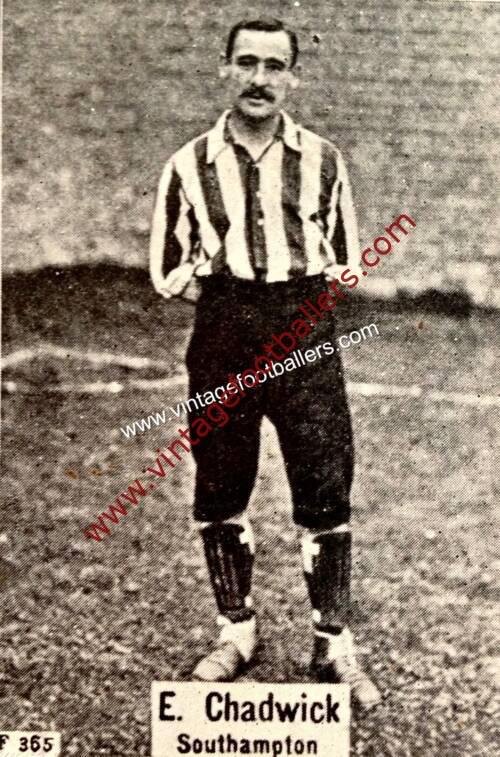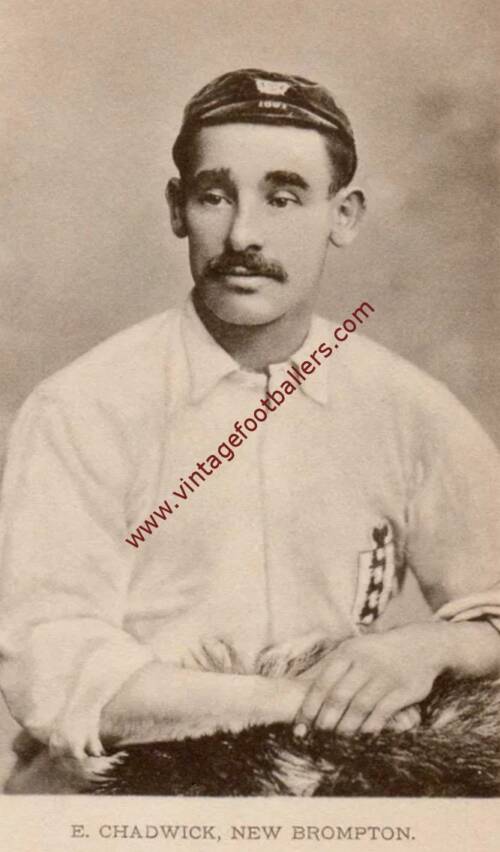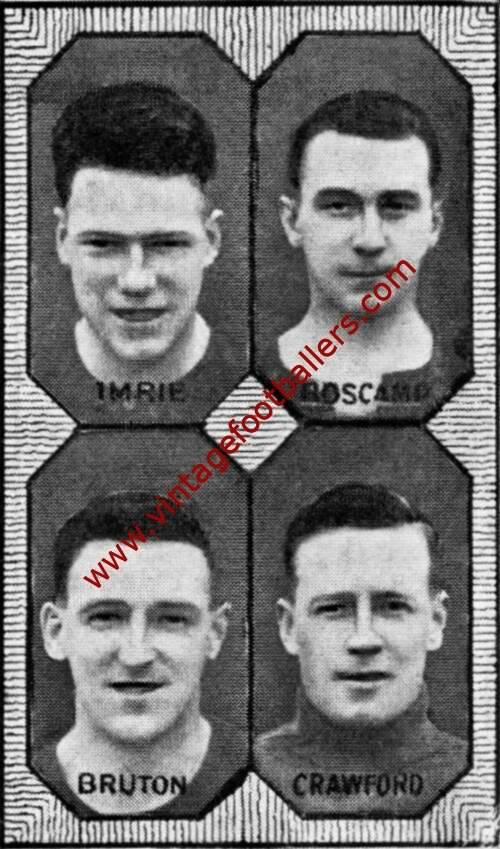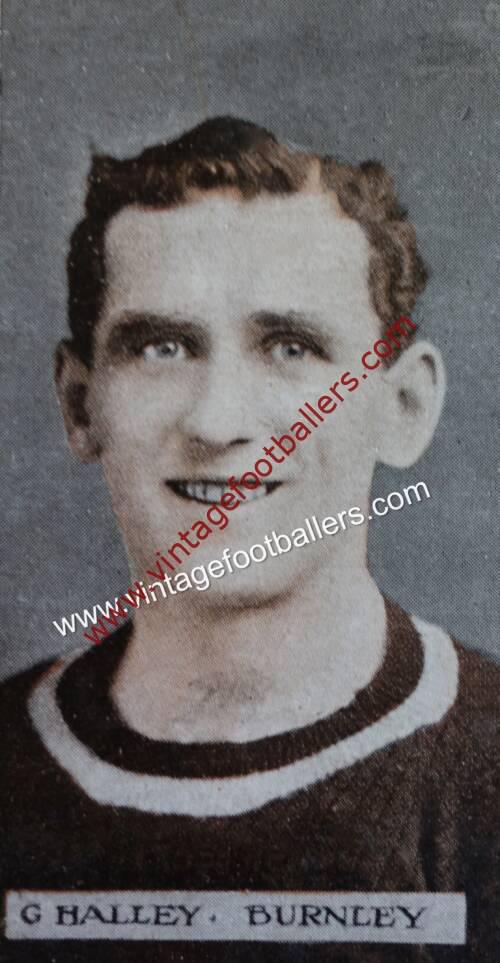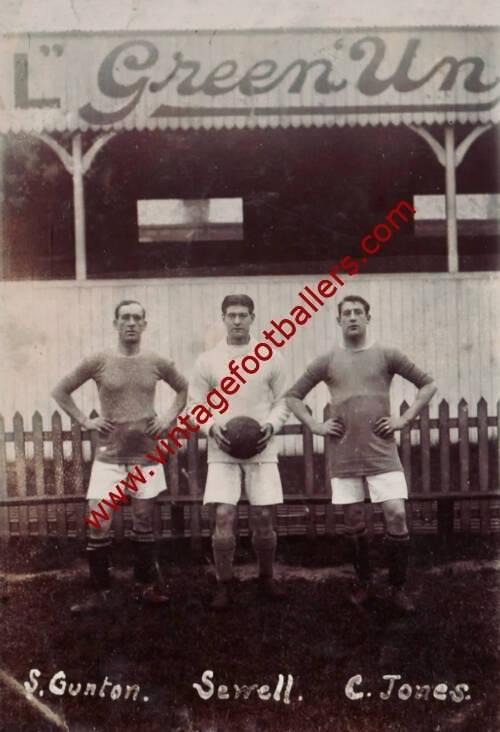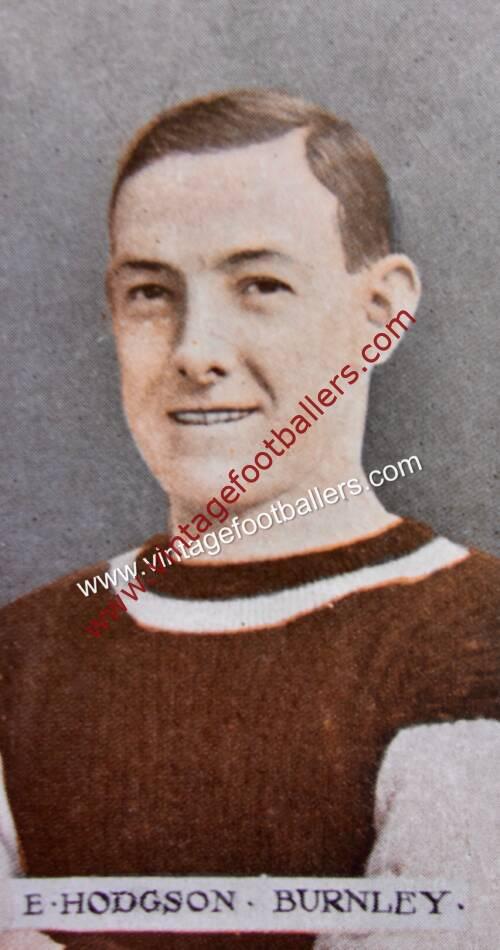Please choose your photo size from the drop down menu below.
If you wish your photo to be framed please select Yes.
Note: 16″x 20″not available in a frame.
Images can also be added to accessories. To order please follow these links
£8.95 – £49.95
Please choose your photo size from the drop down menu below.
If you wish your photo to be framed please select Yes.
Note: 16″x 20″not available in a frame.
Images can also be added to accessories. To order please follow these links
Born in Blackburn, Lancashire inside left Edgar Chadwick started his career at 15 with Little Dots FC, before signing as a professional with Blackburn Olympic in 1886. After one season at Olympic, he joined Blackburn Rovers where he spent the 1887-88 season before signing for Everton in July 1888. He played in Everton’s first Football League fixture against Accrington in September 1888 and scored 6 times in 22 appearances during their inaugural League campaign. He was an ever-present in Everton’s first two years as a Football League team in which they finished in eighth place and then as runners-up, with Chadwick contributing six and nine goals. Chadwick first attracted England selection when a non playing reserve in England’s squad in March 1890. He was then part of Everton’s League Championship winning team of 1890-91, scoring 10 goals in the campaign, including a hat-trick in a 7-3 win over Burnley two days after Christmas 1890, and assisting fellow forwards Fred Geary and Alf Milward to score 20 and 12, respectively, as Everton were also the top scorers with a total of 63 goals from 22 games.
Chadwick’s contribution to Everton’s League winning team was recognised by a call up to the England team (alongside Alf Milward), making his international debut in the British Home Championship match against Wales at The Ashville Ground, Sunderland on 7th March 1891. England were comfortable 4-1 winners with Chadwick and Milward claiming a goal each. Chadwick went on to make a total of seven appearances for England, scoring 3 goals, one in each of his first three matches, through to April 1897, when he played his last match against Scotland at The Crystal Palace. He also made three appearances for The Football League and went on the FA Tour of Germany in November 1899, when he scored 5 goals in a 13-2 win over Germany in Berlin, a brace in a 8-0 win over Austria in Prague and a hat-trick in a further 7-0 win over Germany in Karlsruhe.
In 1893, Everton reached the FA Cup Final, played at Fallowfield Stadium in Manchester, where they were defeated 1-0 by Wolverhampton Wanderers. Over the next few seasons, Everton continued to be a major force in the Football League, coming runners-up in 1894-95 and reaching another Cup Final in 1897 played at The Crystal Palace where again they were defeated, this time beaten 3-2 by Aston Villa. Chadwick spent eleven years with Everton, making 301 League and FA Cup appearances, scoring 110 goals including two further hat-tricks for The Toffees. His goals tally ranks him eighth in the all-time list of Everton goal-scorers and makes him the earliest of Everton’s football “legends” before joining Burnley in May 1899.
His season at Burnley was not a great success, and although Chadwick was the team’s top scorer, with 10 goals in 32 appearances, he could not prevent them being relegated to the Second Division. In a match against Glossop North End on 30th December 1899, Chadwick scored all three goals in a 3-1 victory.
In August 1900 he moved to Southern League club Southampton, where he was re-united with his former Everton left wing colleague Alf Milward. Chadwick and Milward’s partnership contributed 26 goals (14 and 12, respectively) as Southampton once again took the Southern League Championship. In the following season, Southampton reached the FA Cup Final, which they lost in a replay to Sheffield United at The Crystal Palace, Chadwick’s third Cup Final defeat.
In May 1902 he sought fresh fields, but as Burnley still held his Football League registration he had to pay them £35 to release him to join Liverpool, where he stayed for two seasons scoring 7 times in 45 appearances before moving on to Blackpool after their relegation from the First Division in 1904. He was a 40 game ever-present for Blackpool in his one season with the club, and was also the club’s top scorer with 11 goals. He then played out his career with a season at Glossop North End in 1905-06 scoring 5 times in 36 appearances before dropping out of the League to join Lancashire Combination club Darwen in 1906 where his long career finally ended aged 39 in 1908.
After hanging up his boots, he moved to the continent where he coached in Germany before moving to the Netherlands where he coached various club sides including The Hague and Haarlem sides. In 1908, Chadwick was approached to become coach of the Dutch national team. The experts are in disagreement as to whether Chadwick, or his predecessor Cees van Hasselt, should be considered as the first manager of the Dutch national team. Chadwick was appointed manager of the Netherlands to prepare the team for the 1908 Summer Olympics held in London. As Hungary had pulled out of the tournament, the Netherlands had a bye into the semi-finals, where they met Great Britain. This match ended in a 4-0 defeat (with all four goals coming from Harold Stapley, who later spent six seasons with Glossop North End); and the Netherlands then played Sweden for the bronze medal, winning 2-0, as a result of which the Dutch gained their first international success.
Chadwick managed the Dutch national team for 24 games (generally friendlies against Belgium), winning 14. In 1909 they met the England amateur side and were defeated 9-1 (with six goals from Vivian Woodward), but against Belgium, Germany and Sweden they avoided defeat. During the 1912 Summer Olympics held in Stockholm (where eleven teams participated in the football tournament, against only six in 1908) the Dutch defeated Sweden and Austria, but lost in the semi-final 4-1 to Denmark. In the play-off for the bronze medal Finland were crushed 9-0 with Jan Vos scoring five goals.
The greatest success of Chadwick’s career as Dutch manager came on 24 March 1913, in a friendly against the English amateurs, which resulted in a 2-1 victory. Both Dutch goals came from Huug de Groot. After the match Vivian Woodward generously conceded: “The best team won.” Chadwick led the Dutch national team once more, in November 1913, when the English gained their revenge with a 2-1 victory. He was also the coach of Vitesse Arnhem and Sparta Rotterdam, with whom he won the 1915 Netherlands Championship.
After the First World War, he returned to Blackburn and reverted to his original trade as a baker. In December 1923, he applied for the manager’s job at Blackpool, but after being on a short-list of two, he lost out to Major Frank Buckley. His cousin, Arthur Chadwick also played for England as well as for Southampton. He also had a cousin, Albert who played with him at Everton, making five appearances between 1888 and 1892.
| Weight | N/A |
|---|
